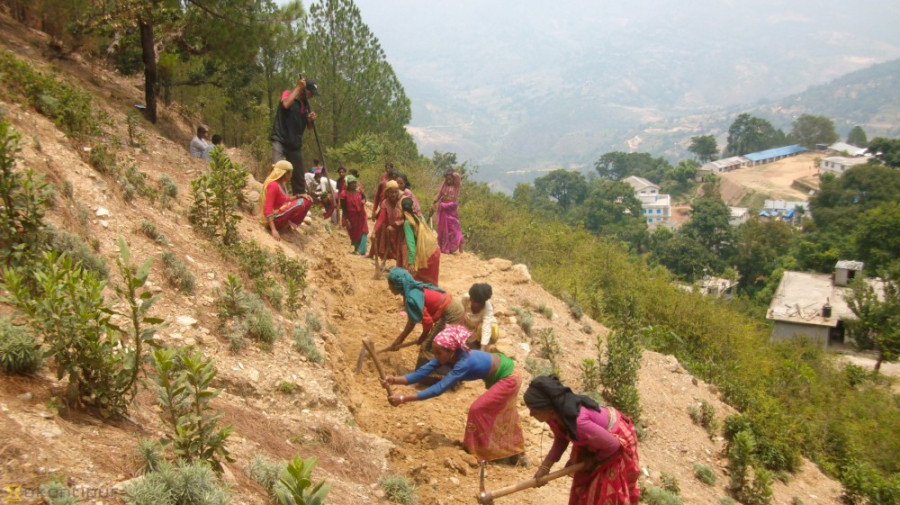National
Experts question decision to accept Rs13 billion loan for Prime Minister’s Employment Programme
The programme was criticised last year for shoddy implementation and the lack of oversight.
Chandan Kumar Mandal
The government’s decision to accept a Rs13 billion loan for the implementation of the Prime Minister’s Employment Programme has been heavily criticised, as the programme has been controversial for its shoddy implementation.
A Cabinet meeting this week decided to accept a soft loan of Rs13.62 billion from the International Development Association, a part of the World Bank, in order to promote youth employment under the World Bank’s Youth Employment Transformation Initiative Project.
But labour analysts say this loan can only be justified if the employment programme is improved in the days to come.
“The need for the loan can only be proven right if the whole programme is aimed at asset creation, not just by ensuring social security for the unemployed but by providing jobs,” said Purna Chandra Bhattarai, a former government secretary and labour analyst. “Some infrastructure was definitely constructed last year under the programme but there were also instances when government funds were not utilised properly. The focus should be on properly utilising the money.”
The much-vaunted programme of the KP Sharma Oli administration was rolled out in February and aimed at guaranteeing a minimum 100 days of paid employment to citizens. At the end of last fiscal year, the government claimed to have generated 2,262,269 days of work for a total of 175,909 unemployed applicants.
Registered unemployed youths were mobilised in a total of 6,864 projects across the country. Initially, the government pledged to provide a minimum 100 days of paid employment for registered people. However, the goal was later revised to only 30 days of job opportunities for more than 100,000 people in the past fiscal year with the available budget and limited time remaining to implement the scheme.
The World Bank, on its website, says that its youth employment project will support the Nepal government in improving employment services and labour-market outcomes for Nepali youth. The project, which will be implemented by the Ministry of Labour, Employment and Social Security, aims to benefit 100,000 youths and will be aligned with the employment programme. The loan amount will be spent on providing remuneration for youths working under the programme, toward skill development for unemployed groups, and to conduct various studies.
Last year, the employment programme created 13 days of work on average, after spending Rs2.36 billion allocated for the implementation of the programme.
Ganesh Gurung, a labour and migration expert, said that employment generation should be the priority of the government as it is the root cause of many other problems currently plaguing the country.
“Creating jobs inside the country is important. But how? The important thing is to pay attention to the employment scheme and its final outcomes,” said Gurung. “The loan for the programme will be on everyone’s head. If it benefits the country, we should have no problem in taking loans. But if the programme continues like last year, when mismanagement was reported, then it can be costly.”
The implementation of the flagship employment scheme of the government saw local level deploying registered unemployed citizens for unskilled labour activities like rearing stray animals, gardening, cleaning, and distributing funds.
According to Bhattarai, the overall employment programme needs a thorough revision of how it’s implemented.
“I hope the government has reflected on last year’s experience of enforcing the programme and made the required changes to effectively implement the programme this year,” said Bhattarai.
This fiscal year, the government still aims to create a minimum of 500,000 jobs inside the country. More than 1.7 million applicants have registered with the employment scheme for which the government has allocated Rs5.01 billion in the budget for the current fiscal year.
“It was the first year of implementing the programme, so even the authorities responsible for implementing the scheme lacked the experience,” said Gurung. “This year, the programme and the investment should be oriented towards creative and productive sectors. If not, the programme can backfire. Monitoring, especially by a third party, is crucial for its success.”




 13.12°C Kathmandu
13.12°C Kathmandu














